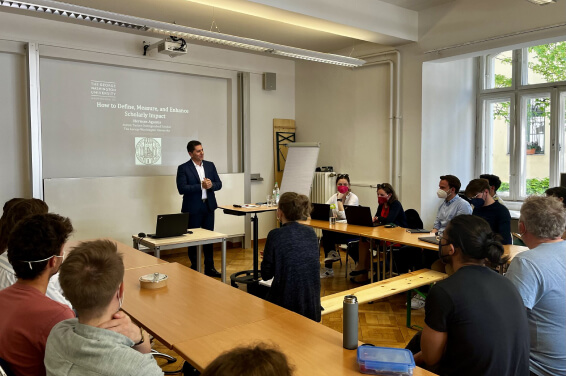
Teaching is an integral part of my research scientist and professor role and I thoroughly enjoy teaching at the undergraduate, graduate, and executive levels. My general objectives in the classroom are to:
I attempt to accomplish these objectives through hands-on assignments, case analysis, multimedia presentations, class projects, invited speakers, and by bringing my research into the classroom.
To help students develop valuable skills, my courses include an experiential and service learning component given recent empirical evidence that this pedagogical approach greatly benefits students and the organizations in which they conduct their projects. Specifically, my courses require that students collaborate with an actual organization to create deliverable products, thereby applying what they learn to a real context and also producing something that beneficiary organizations can use. Examples include consulting for managers facing talent challenges, designing a new performance management system, and designing and evaluating ROI for diversity training. All my classes include a combination of field projects in which students apply the knowledge acquired in class to actual organizational settings. To facilitate discussion and exchange of ideas, I often encourage students to express divergent points of view and share them with the rest of the class. To help students integrate the materials coherently, I typically start each lecture with a 4-minute summary of what the course has covered thus far. To promote critical, analytical, evaluative, and ethical thinking, I often play devil’s advocate to demonstrate that they should think critically and that alternative viewpoints may be equally valid.
I have thoroughly enjoyed teaching the following courses, which I have offered using a portfolio of delivery formats, including entirely online, hybrid, evenings, full-days, half-days, and weekends:
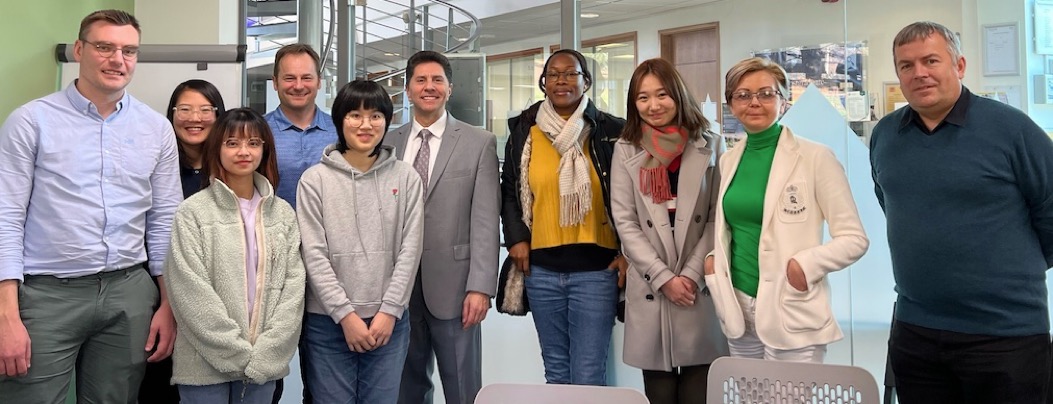
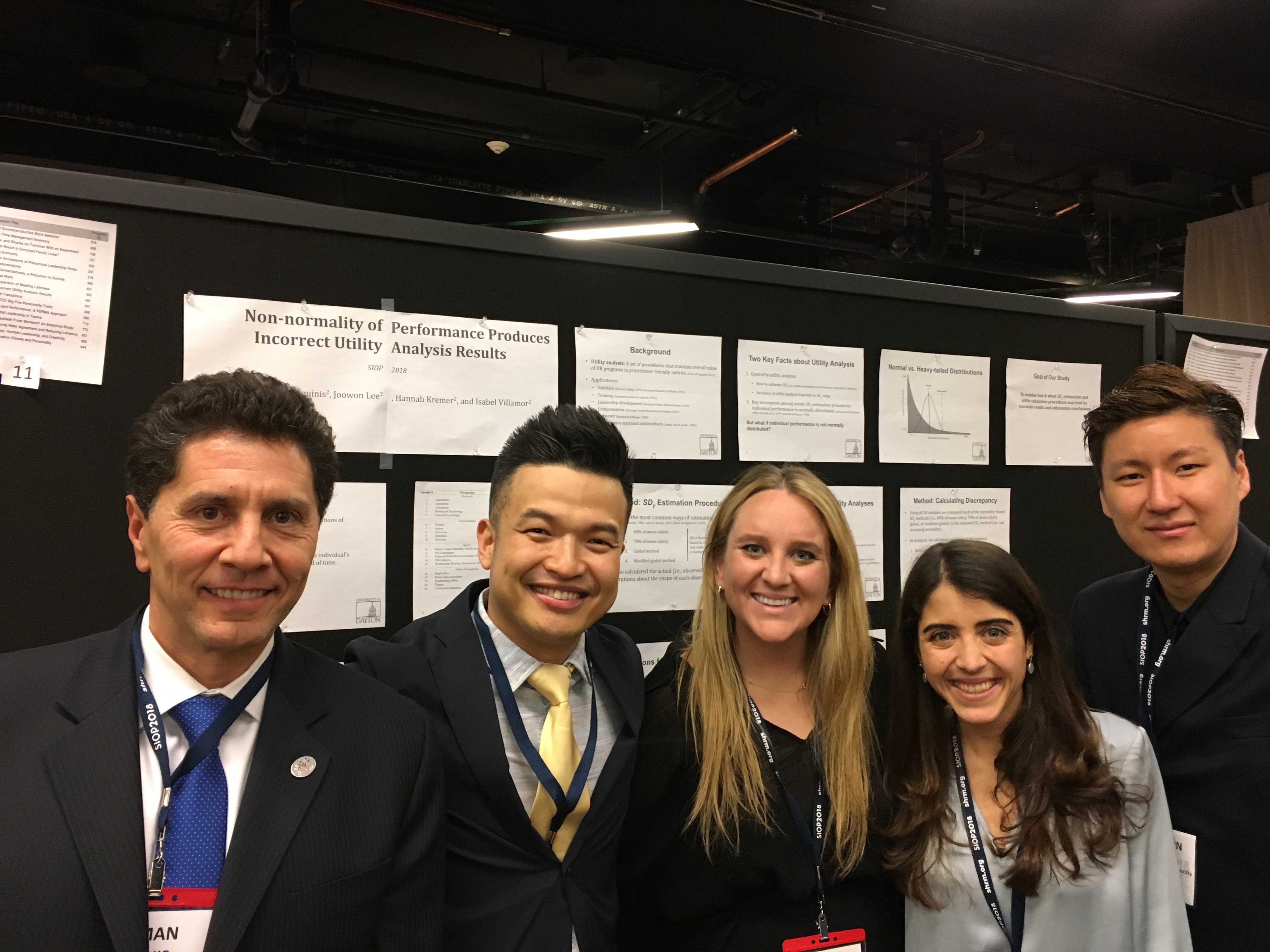
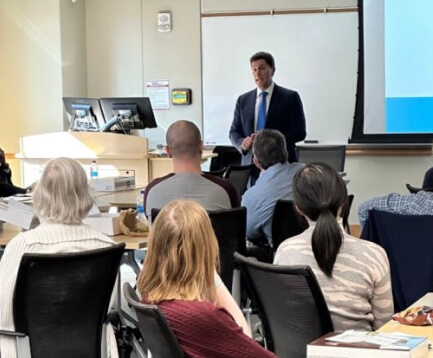
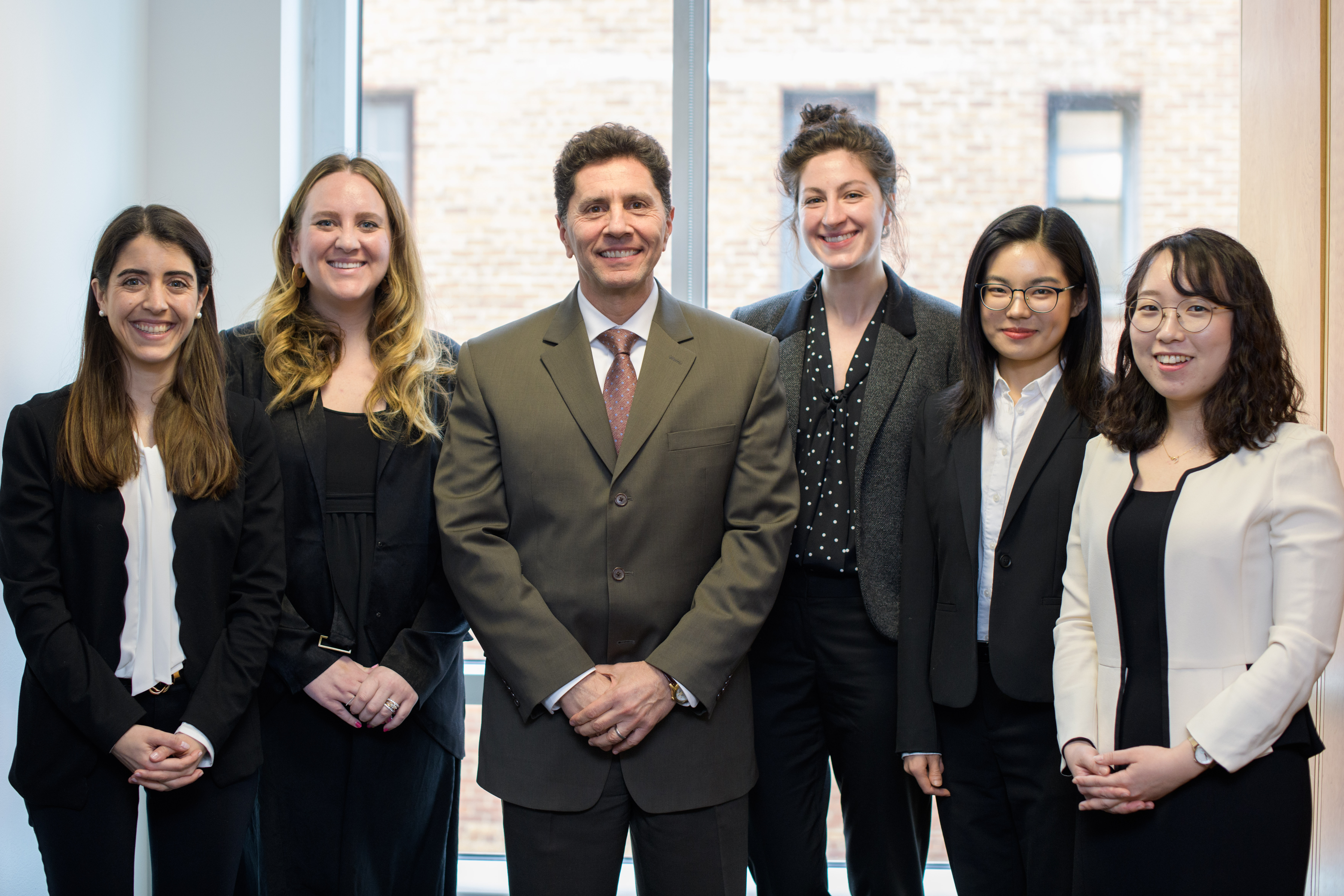
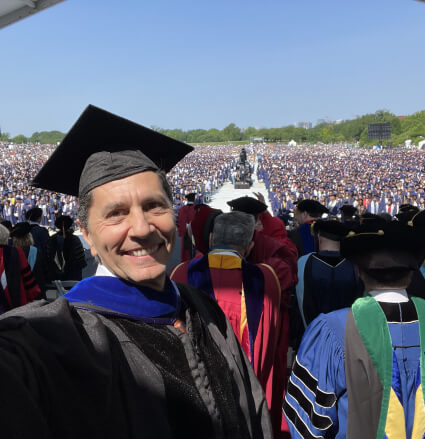

Students’ positive reactions to my courses are reflected in my student ratings and their comments. For example, students who took my courses during August 2019 to May 2023 gave me an average “Instructor Overall Quality” of 4.92 and an average “Course Overall Quality” of 4.81 on a scale ranging from 1 (lowest) to 5 (highest).
In addition to my regular teaching activities, I enjoy devoting time to mentoring and supervising students in independent study/research. I have involved more than 50 undergraduate, graduate, and doctoral students in all aspects of my research, from study design and data collection to writing. I also encourage them to develop their research ideas. The success of these experiences is reflected by students working under my supervision. I have co-authored (a) more than 40 refereed journal articles (e.g., Academy of Management Journal, Academy of Management Annals, Organizational Behavior and Human Decision Processes, Journal of Applied Psychology, Organizational Research Methods, Journal of Management, Journal of International Business Studies, Personnel Psychology), (b) more than 15 book chapters, and (c) more than 120 refereed papers presented at professional conferences (e.g., Academy of Management, Society for Industrial and Organizational Psychology).
Working with students outside of the classroom is an important teaching tool. I believe so because, besides the value of the particular research or application project, this allows students to have individual contact with me. The personal interaction benefits students because we establish mentorship relationships that allow me to offer advice on course selection and career options. In addition, it is gratifying for me to see the results of my efforts translated into securing internships and jobs and students’ development of an appreciation for academic life and the role that the application of management knowledge can play in improving organizations and society.
Part of my teaching activities also involves researching pedagogical issues. For example, I have published results of such research in refereed journals, including the Academy of Management Learning and Education (AMLE—I am also a member of the editorial board) and the Journal of Management Education. For example, our 2014 article in AMLE titled "Scholarly impact: A pluralist conceptualization" was a runner-up for the Best AMLE Article of the Year Award, and a follow-up 2019 AMLE article is titled "A pluralist conceptualization of scholarly impact in management education: Students as stakeholders." Also, I was very proud to learn that a 2023 study ranked me among the world’s top 96 most productive researchers in business and management education based on all articles published between 2010-2019 in 17 journals in accounting, economics, finance, information technology, management, marketing, and operations management (Asarta et al., 2023).
Finally, I have also authored textbooks, including Performance Management (2023, 5th edition), Applied Psychology in Talent Management (2019, 8th edition, with Wayne Cascio), and Research Methodology: Best Practices for Rigorous, Credible, and Impactful Research (2025), which have been translated into several languages (e.g., Chinese Arabic) and are used in universities around the world. Authoring textbooks is also an important and impactful teaching activity. Also, I have noticed that students are particularly motivated to learn when they notice that their instructor is the person who “wrote the book.”